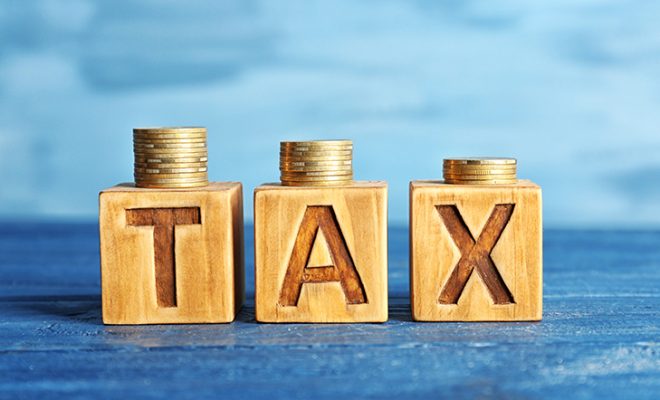Should Long-term Bonds Be A Component of Your Retirement Planning?

Retirement planning is one of the most important financial planning decisions that need to be taken far ahead of time. It is important that we realize that retirement is not just a milestone but a phase that requires diligent planning and appreciation of the preserved wealth. For this reason, long term bonds offer some of the most effective investment options that are primary to a retirement plan.
However, the first step towards determining the right asset class to suit your needs in is to create your retirement plan, as it will help in determining if bond investments offer you the security and stability you need going into retirement.
How do you create a retirement plan?
A retirement plan is a highly customized tool that focuses on meeting your retirement income goals by investing in capital generating and capital preserving assets. It is an actionable and scalable plan that allows you to diversify your retirement portfolio across long term bonds, mutual funds, Treasury Inflation-Protected Securities (TIPS), etc.
Here are some questions that you must answer before creating an optimized retirement plan:
- When do you plan to retire?
- How much money do you have at your disposal to invest in a retirement plan?
- Can you afford a long-term lock-in period?
- How much money do you need post-retirement on a monthly basis?
- How will you manage your taxes?
- Do you already have another pension plan? This could either be employer-based or a self-funded plan
- Are you insured?
- Is your family insured or covered?
Once these questions are answered, the next step is to determine the right asset class to invest in. Bonds are often the first choice for many investors when it comes to investing in a secure instrument with a steady income flow, as they carry minimal risk and account for wealth appreciation at the same time.
Here are some insights into long term bonds and why should you have them in your retirement portfolio:
What are long-term bonds?
Long-term bonds, also known as treasury bonds, are debt-based instruments that are issued by companies and the government in order to leverage their regular operational costs. These are issued in the form of agreement between the company and the investor on fixed terms of return and lock-in. The investor is a lender and the underlying company is the issuer-borrower.
Why should you invest in bonds?
Bonds are an excellent source of a fixed and steady income that can serve as a primary income source post-retirement. Although the lock-in period is considerably long compared to other investment instruments, the risk is negligible. Also, when investing in government bonds, the income generated from them is generally free of tax, saving you from paying heavy interests.
Should long-term bonds be a component of your retirement plan?
The answer to this question depends largely on your present age and when you retire. For investors between the ages of 25-35, investing in long-term bonds can be an excellent idea, as it can offer benefits of compounding over the long term. While investing in equities can seem thrilling and rewarding, allotting some place to bonds can ensure a safe zone on your portfolio. Similarly, for people aged 35 or more, bonds serve to be a risk-free tool ensuring steady income flow. As a general investment rule, your retirement portfolio must contain some percentage of bonds or treasury bonds since they are:
- A highly stable source of steady income
- An excellent way of managing inflation
- Risk-free
- Tax-free in most cases (If at all they are taxed the percentage is minimal)
If you have already retired or are nearing your retirement age then it would be no exaggeration to say that you must look out for 70% to 80% investment in treasury bonds to eliminate the risk of losing any of your hard-earned money in riskier avenues.
Why should you invest in long term bonds?
Investing in bonds is a wise move since they offer stability to your retirement portfolio. Depending on the set of conditions, different reasons appeal to different investors to invest in bonds when it comes to retirement planning. Here are some major advantages of investing in bonds:
-
Helps in capital preservation and appreciation over the period of investment
Investing in bonds is the most reliable source of preserving your capital and ensuring its appreciation over the investment horizon. Bonds are not just a preservation tool but also accountable for high yield returns, depending on the type of bond you invest in.
-
Diversifies your investment/retirement portfolio
Investing in bonds helps diversify your retirement portfolio across government and private sectors. Even if you have an employer-sponsored retirement plan, investing in bonds will ensure you have a major chunk of preserved capital for any major future purchase or expense.
-
Helps create a secondary income source
Investing in bonds is not just a thing of the future but can also account for supplementary income in the present as well. Essentially, bonds work on the principle of capital preservation along with moderate appreciation (varying across bond types). In this case, your principal investment in bonds is preserved but the interest earned on those investments can serve as a secondary income for the present use. This earned interest can also be re-invested into your retirement portfolio if liquidity is not a concern for you.
To sum it up
Investing in long-term bonds is always a good option since they ensure the stability and growth of your investment portfolio. The older you grow, the more your portfolio must be inclined towards bonds to minimize the overall risk.
Investment-related decisions can sometimes be a challenging task at hand. It can be helpful to look for advice from qualified financial advisors and reach a conclusion with due diligence.










